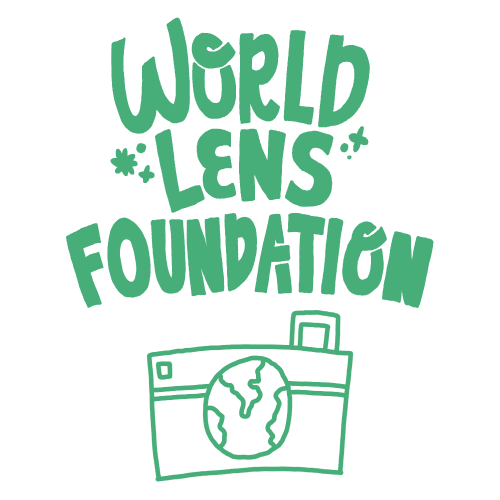PeacePlayers + WLF
Peace Players International – Middle East (PPI-ME) fellow Jack Randolph interviewed Samantha Dols, Senior Director of Operations for the Washington West film festival and Founder and President of the World Lens Foundation (WLF), which seeks to provide youth from around the world with a platform where they can “connect, can get to know each other, exchange beliefs and traditions, and collaborate on creative endeavors.” Samantha’s work with WLF brought her to PPI – ME this week, and she took the time to chat with American Fellow Jack Randolph about the unique work that she does.
What is the World Lens Foundation and what is its mission?
WLF aims to connect youth around the world through the art of visual storytelling. We are setting up 3-month programs between middle school classrooms from different cultures. This Thursday, the 13th, is actually the first day of the program between our Haiti group and our Mexico group. The classrooms will utilize visual storytelling to bring to life the culture that emanates from each side.
What is visual storytelling?
Photography and film-making.
Why did you create WLF?
Born into circumstance, it is our human duty to practice understanding for circumstances different than our own. It’s exciting and enlightening to learn about different cultures, different religions, and to see, despite these differences, how much we have in common.
Why is it so important for us to understand such things?
It’s because of our nature as human beings. We should try to live in harmony with one another. To do so, we need to learn what people define peace as – it can go way beyond the absence of war. Having our basic needs met and having the freedom to explore without the potential for harm are inclusive in our rights as human beings to live in harmony.
Why visual storytelling as the platform?
Regarding photography, it has been said that a picture says a thousand words. It’s absolutely true. Right now our curriculum only includes photography, but we are hoping to expand into film-making of which I have a strong personal interest. I have been affected by many films to the point of conducting outside research after being made aware of something.
So what is WLF doing with PPI-ME?
WLF is now on the road in the midst of a five-week program to eight different countries with very distinct cultures. Each country we visit represents a place considered to be either very peaceful or very conflicted. It’s in these extremes that we can learn a lot and share distinctly different cultures that change perceptions.
Israel is one of the countries that was considered one of the most conflicted based on a measurement called the Global Peace Index from the Institute for Economics and Peace. Not only that, but I have heard so much about Israel and Palestine in the news. After discovering PeacePlayers, it only made sense to visit.
What have you heard? What were your ideas and thoughts about the region?
I have heard so much in the news, but I didn’t really understand. I felt ignorant. The news focuses on the divide between Arab people and Jewish people with the conflict described as something that will never be resolved with so many frustrations on both sides.
What attracted you to PPI-ME?
I looked for an organization that was challenging this idea that the conflict will never be resolved. PeacePlayers has a simple premise to bring kids together from across the conflict to play basketball. However, after interviewing participants from the LDP [Leadership Development Program], I got a taste of the deeper movement within PeacePlayers to challenge the participants to view all people as human beings like themselves. In the midst of the safe venue that is the basketball court, the PeacePlayers have cultivated real relationships across this impossible conflict.
You mention the LDP. I was able to watch your activity where you put them in groups with cameras and asked them to make creative vantage points of basketball whether from the players on the court, the coaches on the sidelines, or the fans in the stands. What other insights did you to take away from your activities and interviews with the LDP?
The participants of the LDP all seem very mature and self-aware. I was impressed by their knowledge of and commitment to the values of PeacePlayers. For me, it was a reminder that sometimes the simple things can be the most powerful. Instead of exhausting the dialogue about conflict of differences in culture and religion, we can play basketball.
What else did you do with the LDP and PPI-ME while you were here?
I was fortunate to spend time with PeacePlayers employees to learn about their relationship to the program, what they have learned in their experience, and why this work is so important to them.
